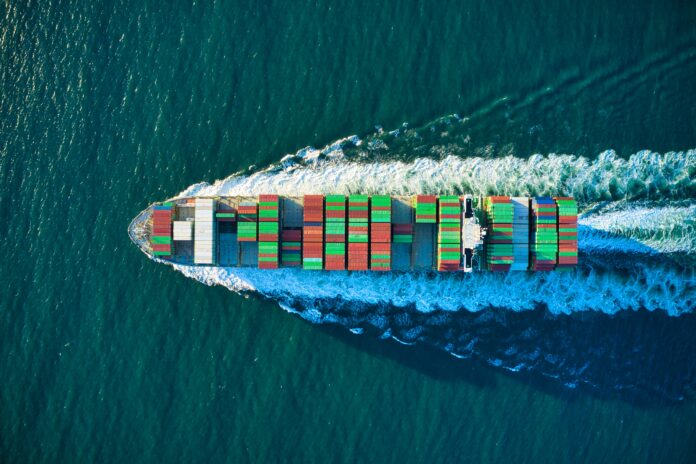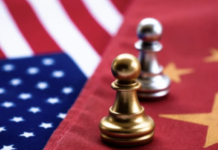![]()
Throughout history, the Indian Ocean has been the heart of global trade. Major cities, including Baghdad and Mogadishu, were founded on the wealth and importance of the region. During the European Age of Exploration, the region’s dominant naval power was almost always, in terms of GDP per capita, the wealthiest country on the planet. Furthermore, profits from the region’s trade allowed formerly peripheral European states such as Portugal, the Netherlands, and the United Kingdom to project political power. These tiny nations achieved naval dominance without land dominance or massive commitments of manpower to gain influence in other areas.
Today, America’s main geopolitical adversary—China—has recognized the importance of Indian Ocean trade with their new “String of Pearls” initiative. While this strategy’s central focus is on political and security concerns as well as economic interests, China’s approach underscores the importance of the ocean.
Comprehending China’s geopolitical tactics in the Indian Ocean requires an understanding of its strategic benefits. The ocean comprises 80% of the global seaborne trade, which remains the dominant method of exchanging goods internationally because of the low cost to ship in bulk. This massive volume of seaborne trade impacts not only the countries bordering the Indian Ocean but also the entire global economy. Around a third of European shipping outside the region, for instance, transits the Indian Ocean.
Modern Chinese leaders understand that prosperous nations control trade for increased wealth and prosperity. Furthermore, commerce provides cultural and political influence for the navies that police the seas.
China’s prioritization of the Indian Ocean, naval power, and global trade represents a seismic shift for the historically conservative society. Centuries of humiliation at the hands of colonial powers prompted Chinese leaders’ realization that isolationist policies endanger the nation and stifle participation in the modern economy. Consequently, China has begun projecting power through maritime expansion.
China’s strategy will acquire vast wealth for itself. The nations surrounding the Indian Ocean comprise some of the fastest-growing economies in the world. Egypt, Burma, Indonesia, India, and Kenya are cases of rapidly growing markets that Chinese businesses can exploit. Furthermore, China can acquire strategic commodities from resource-rich states in Eastern Africa and the Middle East. China’s construction of ports and other trade infrastructure in the region will allow Beijing to control trade flow and profit indirectly from these nations’ successes.
India, another emerging power in the region, has a navy that is one-fifth the size of the United States Navy. The nation currently does not have the capability of leadership in the region, though. Moreover, despite Washington’s desire for India as a pivotal ally, India’s refusal to join the Russian oil embargo signifies potential political divergence.
Therefore, America must expand its presence in the Indian Ocean. America has enjoyed nearly a century of unprecedented prosperity and recently enjoyed a quarter of a century being the sole superpower on the planet. Remaining militarily and economically competitive requires the United States to increase its regional influence.
Today, the United States lacks a fleet designated for the Indian Ocean. The closest fleets are the US 5th Fleet, devoted to the Middle East, and the 7th Fleet, dedicated to the Western Pacific. Furthermore, the United States has fewer bases in the region relative to other areas, inhibiting America’s ability to compete with its main geopolitical rival.
In addition to the military route, America has many potential allies in the region. Kenya is one such country that views the United States extraordinarily favorably. However, as with many other nations in the area, China has major investments in the nation. In addition, Southeast Asian countries are wary of Chinese expansion and provide potential allies in Indochina and the surrounding archipelagoes. While these nations recently signed the RCEP trade agreement with China, they have not wholeheartedly embraced cooperation with the Chinese. If the United States desires to modernize its diplomacy, increasing its commitment to the Indian ocean will be required.
Traditional American allies like the UK, Australia, and France maintain strategically located bases in the region. France has multiple departments and territories in the area meaning French citizens inhabit the area. Consequently, the French are committed to protecting their nationals. The French military has also held military activities in the region since 2001. France has also seen increasing global trade in the area and made arms deals with major regional powers.
Like France, the UK maintains strategic bases in the Indian ocean. It has participated in joint naval activities with Australia and the United States, revealing a commitment to the region. Furthermore, its role as the leader of the commonwealth gives the nation many partners in the area.
However, neither the United Kingdom nor France has the ships or the manpower to lead policy in the region.
Finally, Australia is America’s most devoted partner. The nation has participated on America’s side in every major conflict they have fought since World War One. Towards the end of the Morrison administration, Australia planned on rapidly increasing naval spending. However, Morrison’s loss in the election has led analysts to project that Australia will be more accommodating towards the Chinese. While Australians still overwhelmingly oppose China, their export-based economy is susceptible to Chinese demand for primary commodities. Australia also lacks the population to compete with more substantial powers.
These American allies will continue providing strategic influence in the region, but American leadership and coordination is needed to project power.
Consequently, the burden of protecting the seas falls upon the American Navy. While Americans are increasingly hesitant to become involved in foreign affairs and be the world’s “policemen,” America’s continued prosperity and status as a global superpower demand a continued commitment to projecting power and influence. This crucial region for international trade can not become the soft underbelly of American power. If the 21st century is to be a continuation of the American century our leaders hope to secure, Americans must rally and commit to ourselves to a new endeavor overseas.












